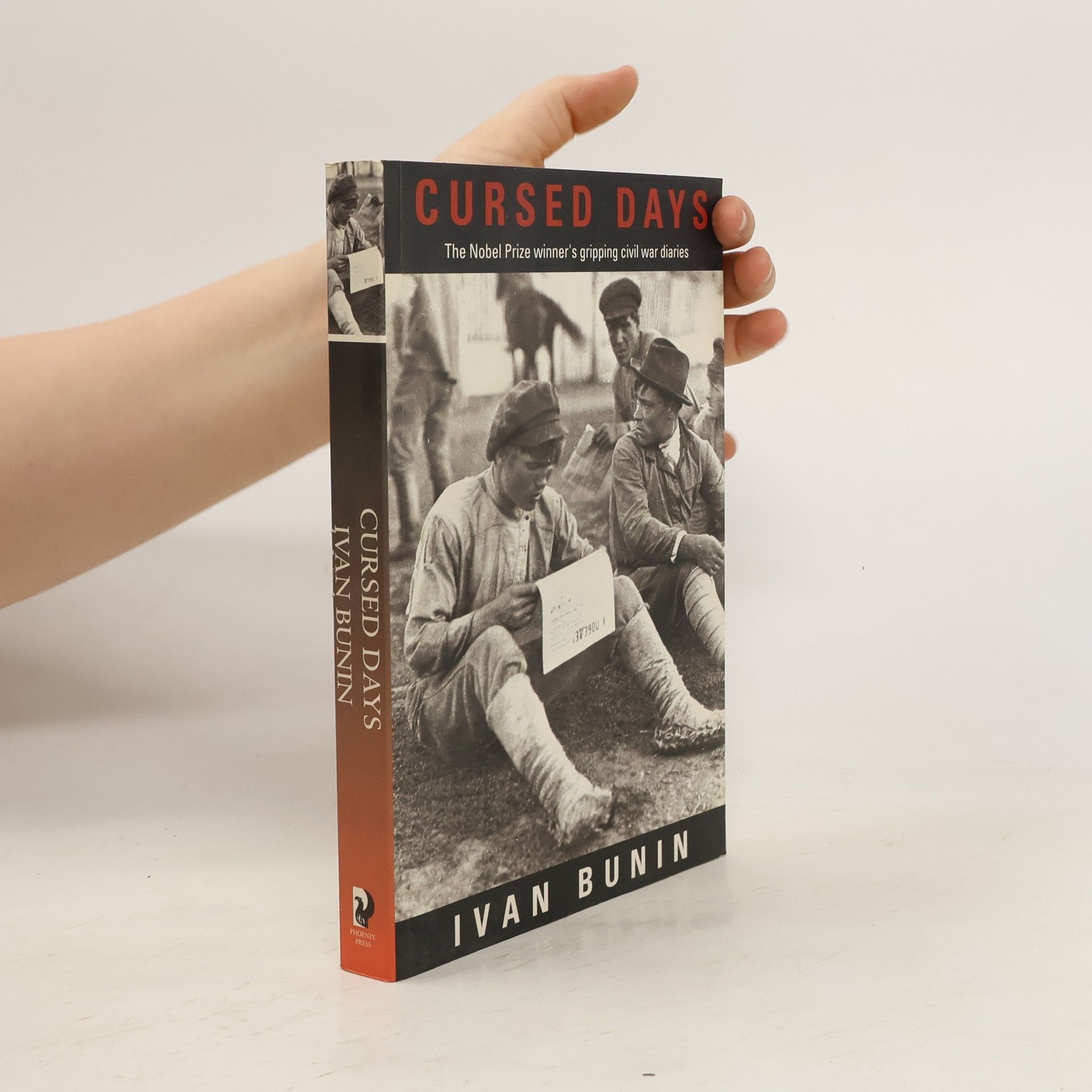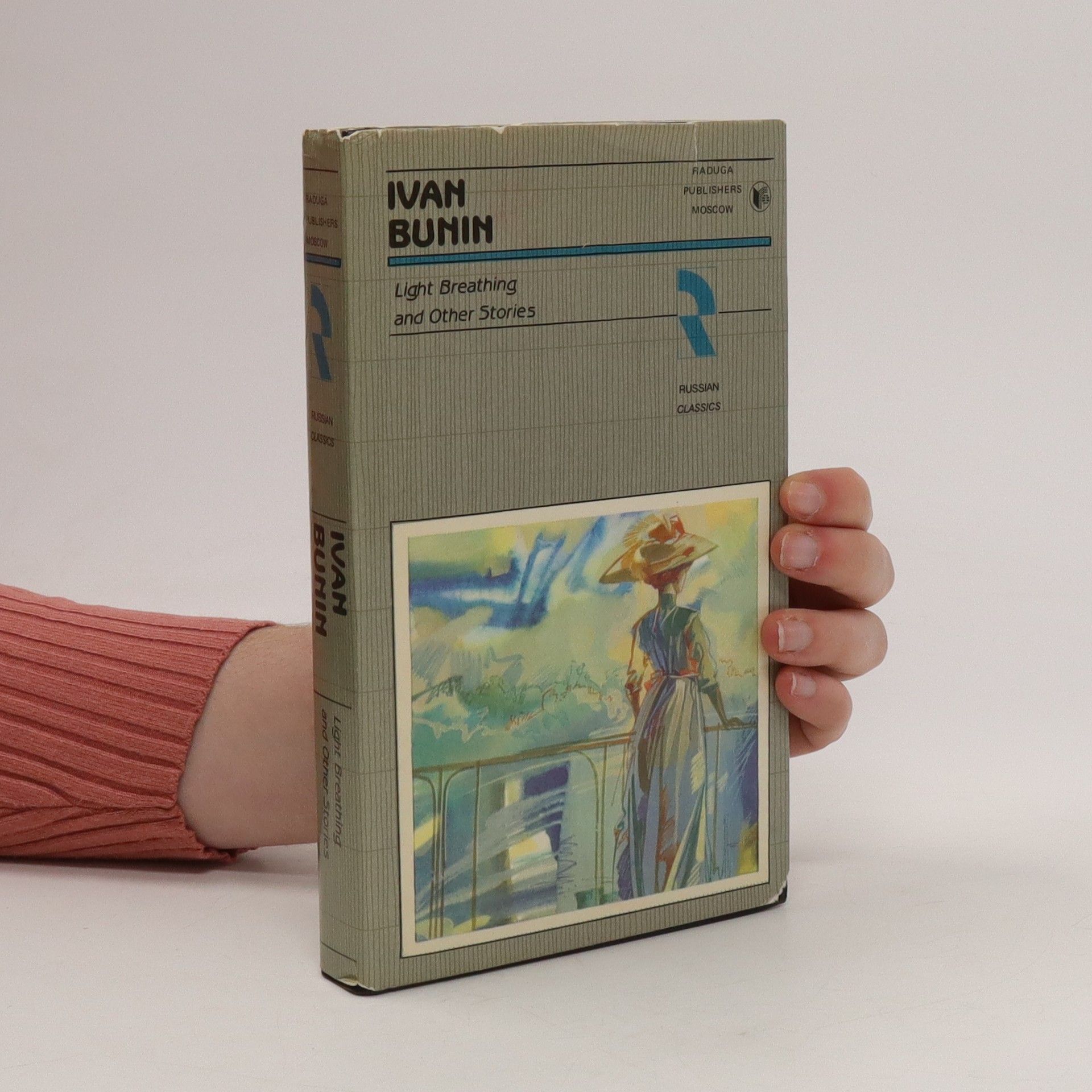The Well of Days
- 328pages
- 12 heures de lecture
Ivan Bunine, premier écrivain russe à recevoir le Prix Nobel de Littérature, est célébré pour l'art strict avec lequel il a perpétué les traditions classiques russes en prose et en poésie. Ses poèmes et nouvelles, réputés pour leur riche texture, sont parfois appelés "brocart de Bunine". Révéré comme un véritable héritier de la tradition réaliste établie par les maîtres de la littérature russe, Bunine était admiré par les émigrés blancs anticommunistes, les critiques européens et ses confrères écrivains. Son œuvre témoigne de la profondeur et de la richesse linguistique de la littérature russe.







The title story in this collection, first published in the original Russian in 1915, is one of Nobel Prize winner Bunin's best known short stories and is considered a classic.
Spanning 44 years of Bunin's writing, these stories give glimpses into the vanished past of aristocratic Russia, replete with country estates, artsy Moscow life and a changing social structure. Some of Bunin's post-1920 stories, such as Ida, Sunstroke and The Elagin Affair, reflect the lives of Russian and European sophisticates, focusing on their love affairs and concern with elegant and refined living. His later stories - In Paris and On one Familiar Street - explore the alienation of those who cannot forget worlds they have lost
Draws on the author's knowledge of Chekhov to depict the writer at work, in love, and in relation with such writers as Tolstoy and Gorky. Through anecdotes and observations, spirited exchanges and reflections, this memoir draws a portrait that examines the depths and complexities of two of Russia's greatest writers.
Set against the backdrop of Moscow and Odessa in 1918 and 1919 these are the great anti-Bolshevik diaries of Ivan Bunin, the first Russian to be awarded the Nobel prize for literature. Originally published in 1936 but banned during the Soviet period, these diaries are now translated into English for the first time by the distinguished Professor of Russian History at the University of Notre Dame, Thomas Gaiton Marullo. Bunin despised the Bolsheviks, whom he believed were ruining his beloved country. In these diaries he recreates the time of revolution and civil war with graphic and gripping immediacy. His uncompromising truths are jolting. His pain and suffering in watching the overthrow of his country by ¿thugs¿ and the chaos of civil war, and his fears for the devastation of ¿patriarchal¿ Russian culture, consumed his days and receive vivid expression in his diaries. An original and important contribution to our understanding of this tumultuous period by a master of prose and a perceptive social critic.
In Sunstroke, Hettlinger has selected the well-known The Gentleman from San Francisco and 24 other stories by Bunin, and translated them afresh. The collection includes, among others, Raven, Cold Fall, Muza, Styopa, Antigone, In Paris and Late Hour.
Ivan Bunin, the first Russian Nobel laureate in literature, is celebrated as the last of the great Russian masters. Fleeing to France after the 1920 revolution, he continued to craft profound short stories, including "The Gentleman from San Francisco," and published his final collection, "Dark Avenues," in the 1940s. His notable works include the autobiographical "The Life of Arseniev" and memoirs reflecting on his literary connections with Tolstoy and Chekhov, highlighting his role as a bridge between these literary giants and Nabokov.
Graham Hettlinger's brilliant translations of Bunin's stories in (2002) were widely acclaimed. In The Elagin Affair , Mr. Hettlinger continues to acquaint English-language readers with a Bunin they may not have appreciated. Bunin's sensual, elaborate, and highly rhythmic prose has proven deeply resistant to earlier translations. In these new stories, Mr. Hettlinger captures both the music and the grace, as well as the literal meaning, of Bunin's renowned prose. The Elagin Affair contains three of the author's greatest novellas, the title piece, "Mitya's Love," and "Sukhodol" as well as a broad range of stories written between 1900 and 1940 and centered on themes of love, loss, and the Russian landscape, including several of Bunin's most haunting stories from his final collection, Dark Avenues .Praise for Sunstroke , Graham Hettlinger's first translations of Ivan "Bunin is, unaccountably, the least translated of the great Russian writers (and his best work ranks with that of Turgenev and Chekhov). This splendid volume takes an important step toward righting a long-standing wrong."―Kirkus Reviews"Graham Hettlinger's new translation...gives us a Bunin startling in his vividness, sensuality, and restraint."― Virginia Quarterly Review"Vibrant...a fine introduction to Bunin's work and a reminder of its importance."― New York Sun
An achievement of twentieth-century Russian émigré literature, Dark Avenues--translated here for the first time into English in its entirety--by Ivan Bunin, Russia’s first Nobel Prize winner.